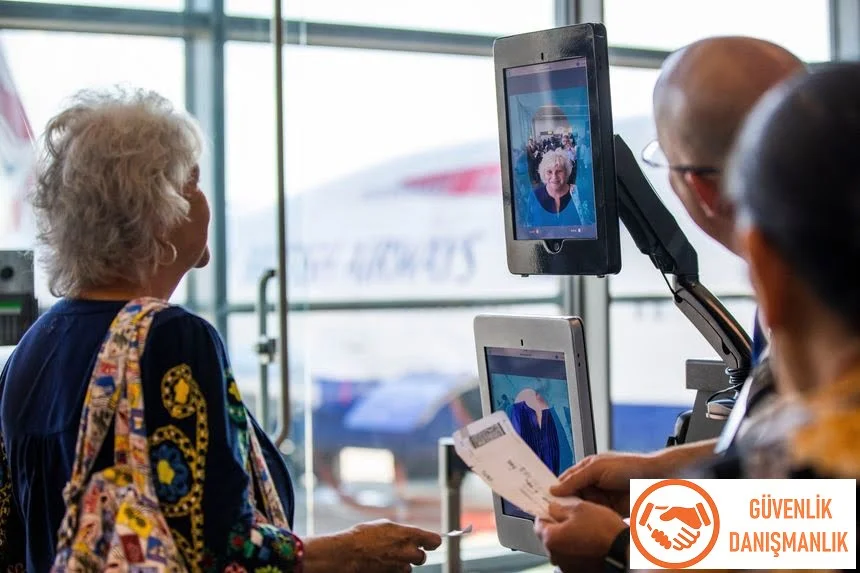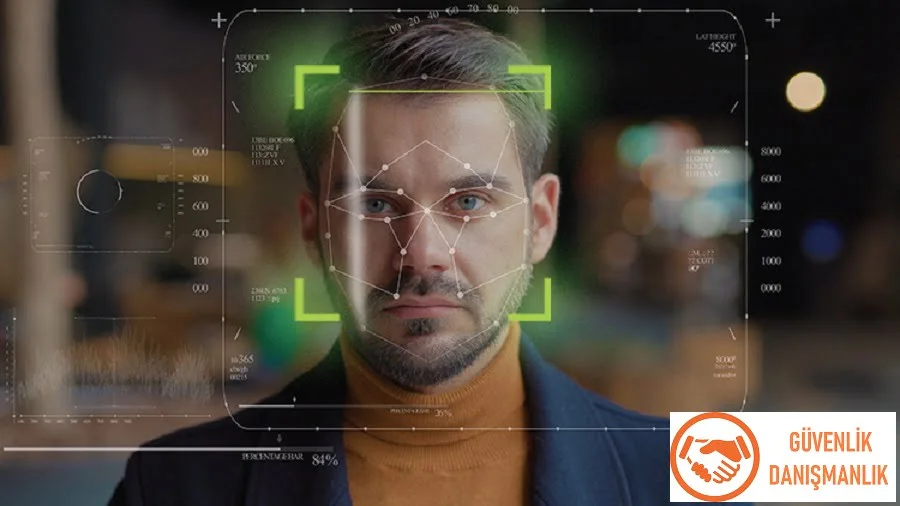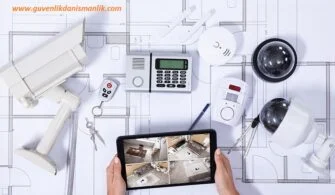Facial recognition systems are a biometric security technology that has become increasingly popular in recent years with the rise of technological advancements. These systems allow for identity verification using a person’s face.
Face recognition systems scan a person’s face from various points and create a pattern from these points. This pattern is then compared to other patterns in a database, and if there is a match, the verification process is successful. The areas of application for these systems are quite wide and they are frequently used in security systems.
Face recognition systems have many advantages over other identity verification technologies. Some of these include:
- Speed: Face recognition systems are extremely fast and can verify a large number of users quickly. Therefore, they are widely used in crowded places, public transportation systems, or events.
- Security: Face recognition systems are more secure than other identity verification technologies. Technologies like fingerprint scanning systems or card access systems are items that carry the risk of loss or theft. However, facial recognition systems are a more secure option as they verify a person’s face.
- Accuracy: Facial Verification Systems provide more accurate results than other identity verification technologies. These systems use high-resolution cameras to scan specific features on a person’s face, resulting in more accurate results than other technologies.
- Ease of Use: Face recognition systems are more advantageous in terms of ease of use compared to other technologies. While using technologies like fingerprint scanning systems or card access systems requires a training process, facial recognition systems provide a natural ease of use.

Facial Verification Systems are used in many sectors, including airports, banks, hotels, hospitals, schools, public institutions, and many other areas. Their use is particularly widespread in the security sector and continues to increase.
In conclusion, face recognition systems are a biometric security technology with many advantages in terms of ease of use, speed, security, and accuracy. With advancing technology, face recognition systems are further developing and finding more areas of use.
There are many brands that produce facial recognition systems. Some of the prominent ones are:
- NEC: NEC is a leading brand in face recognition technology. The company provides facial recognition systems to the security, airports, public institutions, and many other sectors.
- Hikvision: Hikvision is a leading brand in CCTV and security technologies. The company specializes in face recognition systems and provides solutions to many sectors.
- Suprema: Suprema is a leading brand in biometric security technologies. The company provides facial recognition systems, fingerprint scanning systems, card access systems, and other biometric solutions.
- Idemia: Idemia is a leading brand that provides biometric identity verification solutions worldwide. The company provides facial recognition systems, passport and identity verification systems, banking solutions, and many other services.
- Dahua: Dahua is a leading brand in CCTV and security technologies. The company specializes in face recognition systems and provides solutions to many sectors.
Facial Identification Systems are more secure, fast, and provide more accurate results compared to other identity verification technologies. Therefore, they are used in many sectors and becoming increasingly widespread.
Facial Identification Systems have some advantages and disadvantages compared to card access systems. These are as follows:
Advantages:
- Fast and Easy to Use: Facial Verification Systems are faster and easier to use compared to card access systems. While card access systems require users to swipe their cards, facial recognition systems only require users to show their face to the camera.
- More Secure: Facial Verification Systems are more secure than card access systems. Cards can be lost or stolen, while facial recognition systems verify the person’s identity using their facial features.
- Less Expensive: Facial Verification Systems are less expensive than card access systems. Card access systems require a card for each user, reader devices, and other equipment. Facial recognition systems only require a camera and software.
- Personal Privacy: Facial Verification Systems are designed to protect personal privacy. The person’s face is stored in a database, and the security of personal data is ensured.
Disadvantages:
- High Cost: Facial recognition systems are more expensive than card access systems. High-quality cameras, software, and other equipment are required.
- Verification Challenges: Facial recognition systems can sometimes face verification challenges. Especially in poor lighting conditions or when a person’s facial features have changed, verification problems may arise.
- Personal Privacy: Face recognition systems can raise concerns about personal privacy. Some people may be against having their faces photographed or having other people’s faces recorded.
- Technical Issues: Facial recognition systems can cause technical problems. Software or hardware malfunctions can cause the systems to not work properly.
In conclusion, face recognition systems have some advantages and disadvantages compared to card-based access control systems. Therefore, depending on the industry and intended use, choosing the right system is important.






